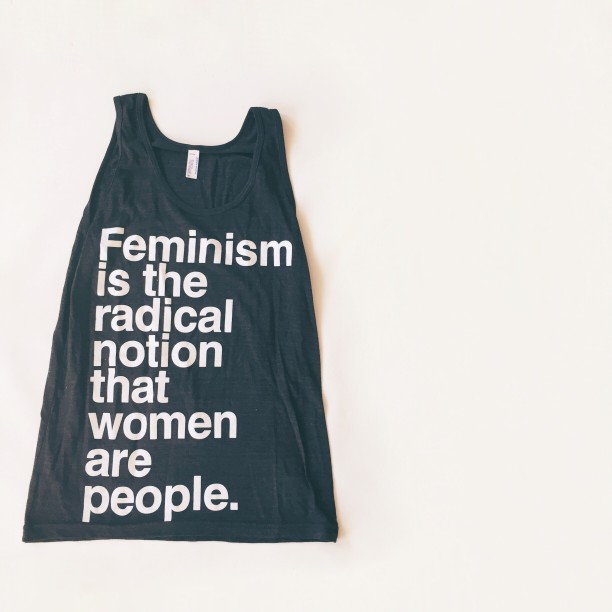3 Ways To Implement Diversity and Inclusion At Your Workplace

Written By: Poorvi Gupta, 🖊 edited by Varna
Increasingly organizations are taking a much more diverse and inclusive route while recruiting a workforce. In the absence of a common framework, organizations have created their own criteria for the ‘kind of diversity’ they want to encourage in their companies.
One of the chief reasons for companies to encourage diversity is the ability of diversity to bring in multidisciplinary voices at the workplace. While this definitely is a good thing, does a diverse workforce stay diverse on its own?
Unfortunately inequities in representation at the workplace, like in society tend to be resilient. Newly hired personnel from diverse backgrounds, many doubly or triply marginalised by their gender, caste, colour and socio-economic background, often find insurmountable levels of harassment or differential treatment within workspaces.
This causes the diverse elements of a workspace to slowly, over-time, self-select itself out of the rat race as it were. This is the primary reason why laws and institutional structures need to focus on not just hiring, but also retaining and sustaining employees actively.
One part of the retention and growth of a diverse set of employees is to get companies to commit to actually doing more than just ticking the compliance boxes on D&I. In this article, we will look at some companies who actually took on the aspect of sustaining diversity, prioritised D&I as a strategic goal and succeeded.
Don’t Discriminate



Kanika Tekriwal, founder of JetSetGo – the Uber of the skies as she calls it, finds diversity integral to her workforce. “It has been an important personal focus for me. We are one of the few companies to have a woman in every cockpit. We’re also very conscious in having more women in operational or engineering roles,” says Tekriwal, adding that over 40% of JetSetGo’s current workforce is female.
For Kanika, this is clearly a thing of pride – as she says “The aviation sector is a developing sector in terms of gender diversity. Increasingly more and more women are choosing a career in the aviation industry”.
For her, the top way to ensuring diversity (at recruitment) is for companies to not discriminate and have prejudices at the time of recruitment. “It is very important for organizations to have a very clear cut criteria as to not differentiate between men and women but one that instead focuses on getting the right people on board,” says Tekriwal.
As far as sustaining diversity is concerned, she says, “…my key method to ensure sustainability of inclusion is to not treat anyone specially. We don’t treat a man better than a woman or vice versa. If you provide equal treatment and opportunity to men and women and don’t roll out special favours to either men or women, you’re already making the workplace equal and diverse. I personally believe that the more special setups one has for women, the more issues differences and toxicity it causes.”
In a different example the Lemon Tree hotel chain ushered in a revolution when it started to hire people with disabilities in 2007 – five years after the company was formed. Till date, it remains a great example of what visionary leaders can do to bridge the gap between employment and accessibility of opportunities. Patu Keswani, Chairman & Managing Director, Lemon Tree Hotels Ltd., suggested focusing on this issue to the company’s then HR head who began the work of connecting with non-profit organisations in this space.
Keswani’s personal interest in the project demonstrates what it takes to get change-at-scale. The Lemon Tree chain of hotels conducted training sessions for their employees in the kitchen and restaurant sections to learn Indian Sign Language – an exercise which has become a routine training activity at the hotel chain.
“We realized very quickly that we have to sensitize all our other team members to understand how they can work side by side with employees with disability. It is imperative for them to learn Indian Sign Language as well as how to engage with their deaf colleagues. So we conduct sensitization programs with the help of our NGO partners and HR colleagues,” says Aradhana Lal, VP Brand, Communications and Sustainability Initiatives at Lemon Tree.
Scale Inclusion



Within the first two years, Lemon Tree employed between 20-25 employees with disabilities across five properties, this has now scaled to over 400 people at the hotel chain. But was inclusion and diversity the only gain to the company? Turns out not. The outcome of this exercise as experienced by Lemon Tree was in Lal’s words, “these employees have turned out to be very high energy, enthusiastic and focused. Once their training is done, they are able to perform with great precision.”
Since no one gave them a chance before, they are now very keen to do a good job. The speech & hearing impaired employees who are recruited as room boys are often able to clean more rooms than our hearing room boys. The operational efficiency has been 15% more. We piloted and collected data for the first two-years as a trial, then we just made it a part of our HR strategy and business model at Lemon Tree.” Lal is a part of the founding team.
Today, Lemon Tree’s diversity policy boasts of employing physically handicapped people who are partial or wheel-chair users, people with low vision, intellectual disability, autistic people, trans persons and Economically and Socially marginalized people (ECOSOC), etc.
As per their own records, a total of 16% of their employee pool has fulfilled their diversity plan which focuses on what they call Opportunity Deprived Indians or ODIs. The goal is to reach 40% ODIs in the next five-six years.
Lemon Tree also engages in knowledge sharing with other hotel chains like Country Inns & Suites, Radisson, and The Oberoi as well as other companies like PVR Cinemas, Nexus Malls and Amazon to teach them how to do “inclusion” right. Lal notes that in a manner of speaking, Lemon Tree acts as a university now for companies who want to genuinely work on inclusion by teaching them how to hire PwDs, how to provide them with training and then after working with them for a few years, how to move them on to achieve career growth.
“Interestingly, we have had a number of occasions where people have come back to work with us as they find that the organization that paid them a better salary may not be as culturally aligned and fully sensitized, as Lemon Tree is,” she shares.
Another company which has proved to be extremely conscious in their recruitment and hiring, despite being a much smaller company than Lemon Tree is Zubaan Books, an independent feminist publishing house. While its employee count is under 20 and comprises mostly of women, it explicitly recruits women-only, trans, non-binary folks and folks from minority religious communities for their team.
Recruit Explicitly



Talking about their fierce recruitment drive and inclusion policy, Meghna Singh, Zubaan’s publicity coordinator said, “Essentially, Zubaan started off as a feminist publishing house in a very male-dominated field so we have historically been a women-staffed organization. But the kind of people we hire has changed over the years and the ambit of our feminist work has also been such that we realized we need to put more focus in building an organization that is representative of the kind of work we do. So if we are working with marginalized communities then we should not be an organization that is dominated by upper-class, upper-caste, English and Hindi speaking employees.”
On asking Singh about why the publishing house chooses to specifically call for applications from a section of the society, she says, “If we don’t specifically make that choice and publicize it as such during our recruitment drives then people don’t get to know that a workplace is open to it and looking for this kind of diversity.”
Urvanshi Butalia, Zubaan’s founder, Director and CEO, weighed in on some of the practices that Zubaan puts in place to ensure inclusion. She said, “We have tried to be alert and understanding of the ways publishing has always been dominated by upper-class, upper caste men. It used to be known as a gentleman’s profession which referred to gender and class. So we tried to address it with Zubaan. This carries through in our content, which focuses on space and representation to all kinds of marginalized voices.”
On a non-hierarchical decision-making structure, she said, “To ensure inclusion, we have tried to work in a non-hierarchical fashion which doesn’t mean that we don’t recognize that hierarchy exists but as far as possible every decision is discussed and thought through and taken after taking everybody’s concerns have been heard.”
We already know that the top priority for any organization to kickstart a diversity program is to have a system in place that does not discourage and discriminate against those who get hired due to a quota.
The next step is ensuring a pain-free work experience for workers who come through such a system. Here is the one thing that all organisations who are committing to sustaining diversity have in common – the drive and passion to making a consistent effort at normalizing diversity at the workplace.
Also Read: Understanding the PoSH Act in Retail Spaces
About the Author: Poorvi Gupta is a freelance journalist working in the gender space. She is mostly optimistic about the progress women are making in male-dominated spaces and feels passionately about women speaking up at the workplace or in public spaces battling intersectional odds.
– Image used for representational purposes. Credit: Sharon/Flickr
Ungender Insights is the product of our learning from advisory work at Ungender. Our team specializes in advising workplaces on workplace diversity and inclusion. Write to us at contact@ungender.in to understand how we can partner with your organization to build a more inclusive workplace.
Read our insights about diversity, legal updates and industry knowledge on workplace inclusion at Ungender Insights. Visit our Blog.
Sign up to stay up-to-date with our free e-mail newsletter.
The above insights are a product of our learning from our advisory work at Ungender. Our Team specialises in advising workplaces on gender centric laws.
or email us at contact@ungender.in




